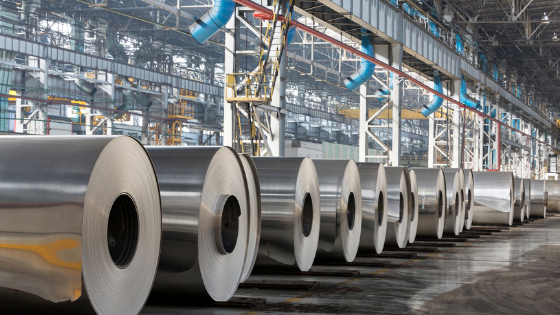U.S. manufacturing is once again in the news. New data shows America’s factories adding 261,000 jobs from January 2018 to January 2019. In the State of the Union, President Trump emphasized the urgency of confronting predatory trade from countries like China….
Op-ed by Michael Stumo, CEO of CPA, originally appeared on February 12, 2019, in the Hill
There’s no doubt that America’s manufacturers are currently rebounding. The tariffs that President Trump imposed a year ago on steel, aluminum, solar panels and washing machines have already created more than 11,000 new jobs.
These new gigs include those in steel mills being announced by Nucor, Steel Dynamics and others. There’s also roughly a dozen companies planning new solar panel manufacturing facilities in Florida, Maryland and Oregon.
Even U.S. car companies are doing well at home. Ford’s North American operations posted a $2 billion profit in the fourth quarter, while GM’s North American net income topped $3 billion. Major steel consumers like Caterpillar and United Technologies have also reported strong results for 2018.
Despite this, critics of the tariffs still abound, particularly among large retailers claiming the tariffs will necessarily lead to price increases.
But that’s not what’s happening. Prices for new cars — which contain plenty of steel — remain steady. And the price of aluminum-canned beer is also rising at less than the rate of inflation.
America’s consumers simply aren’t seeing any major price increases from the tariffs, and core inflation has remained low at 2.2 percent. But industrial users of steel and aluminum haven’t seen price jumps either.
After a short-term increase in the summer, steel prices have actually fallen back to the levels of last January and February — before the tariffs even took effect. And federal data shows the Producer Price Index rising a cumulative 2.5 percent in 2018, exactly the same as it did in 2017.
U.S. industrial production has continued to climb throughout 2018, though, including a 7.8 percent increase in one of the heaviest metal-using sectors, motor vehicle and parts manufacturing.
These are all strong numbers, and they help to explain why U.S. manufacturing added so many jobs in 2018 — the sector’s best showing since the Great Recession.
Why aren’t the tariffs causing all of the headaches that were predicted? Because manufacturers are simply absorbing any cost increases along the way.
A Seattle startup, Rad Power Bikes, just announced it will return bicycle prices to pre-tariff levels. The company explains that, by working with vendors and diversifying production, it is lowering prices. In fact, the company’s founders have offered to refund the extra $200 that customers had paid in 2018.
Because the U.S. maintains the largest, most affluent market in the world, Chinese exporters would rather reduce prices than lose access to U.S. consumers. Chinese producers earn huge profits on their American sales, thanks to labor averaging $3.60 an hour labor and government-subsidized steel and aluminum.
Because their costs are much cheaper, Chinese producers have always priced products high enough to earn large profits. But with the tariffs, those margins are finally shrinking.
The net result of the tariffs is that the U.S. economy is better off. Consumers pay the same for many imported goods, U.S. producers enjoy more competitive margins, and the U.S. Treasury gains extra income from tariff revenues.
Of course, there’s the irony of critics like the Wall Street Journal attacking the tariffs for delivering high prices and profits to major U.S. steel companies. And they express concern for the profit-sharing bonus that Ford employees lost when the company paid more for steel and aluminum in 2018.
But the tariffs are intended to save good-paying jobs in America’s steel and aluminum sectors — jobs that have been under attack for years from dumped, government-subsidized Chinese steel and aluminum.
Wall Street could have expressed concern for America’s workers years ago, when China’s predatory behavior and outright technology theft became apparent. After all, such cheating absolutely violates free markets and free trade. And it has taken a heavy toll on U.S. industry.
Strong medicine such as tariffs is simply a necessary recourse in hard times. And as America’s manufacturing resurgence in 2018 demonstrates, it’s working. Now, President Trump should follow through, by raising the tariffs to 25 percent, as originally planned — to curtail China’s cheating and spur more manufacturing job growth.
Michael Stumo is CEO of the Coalition for a Prosperous America (CPA), which advocates on behalf of U.S. farmers and manufacturers.













